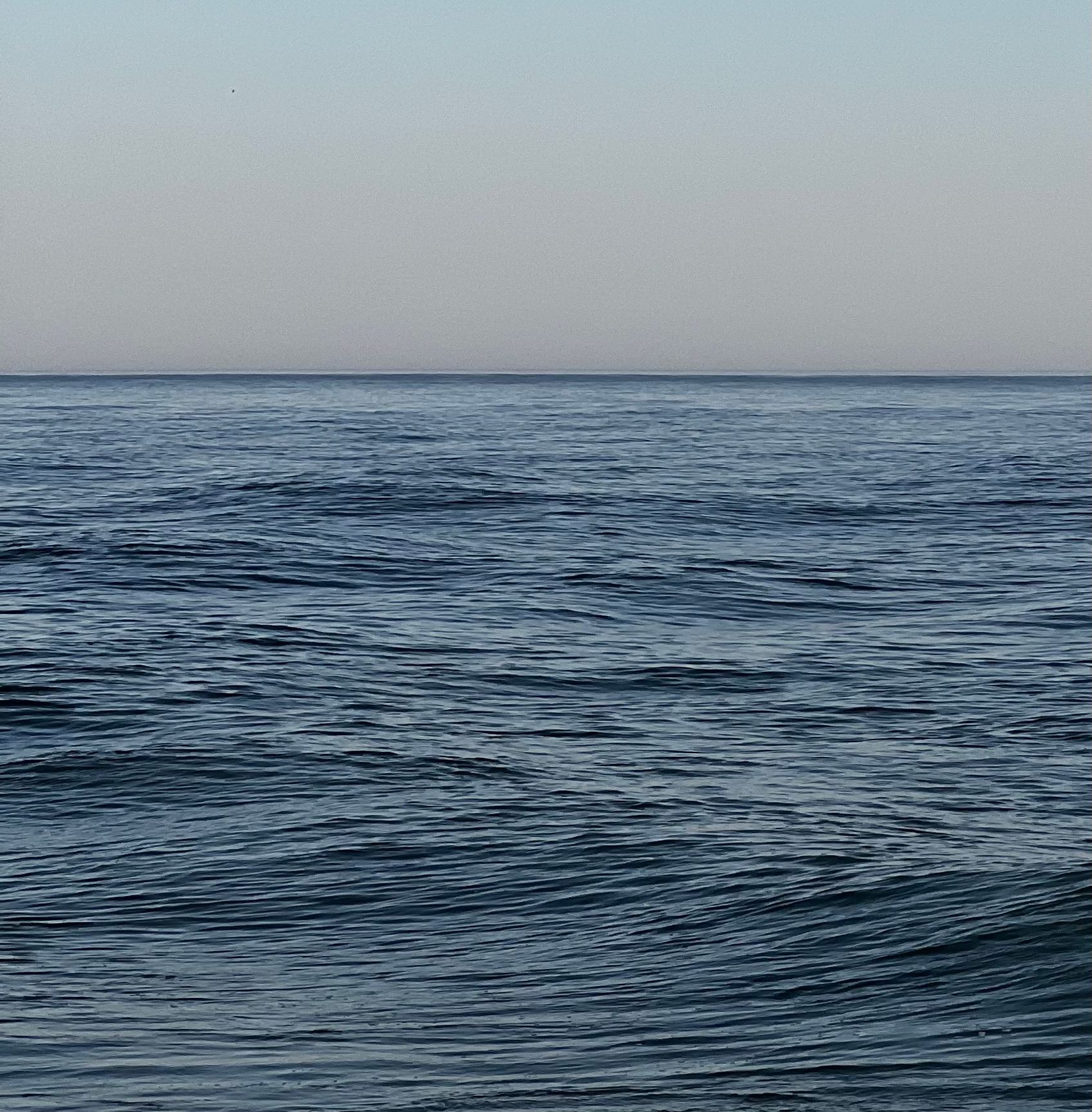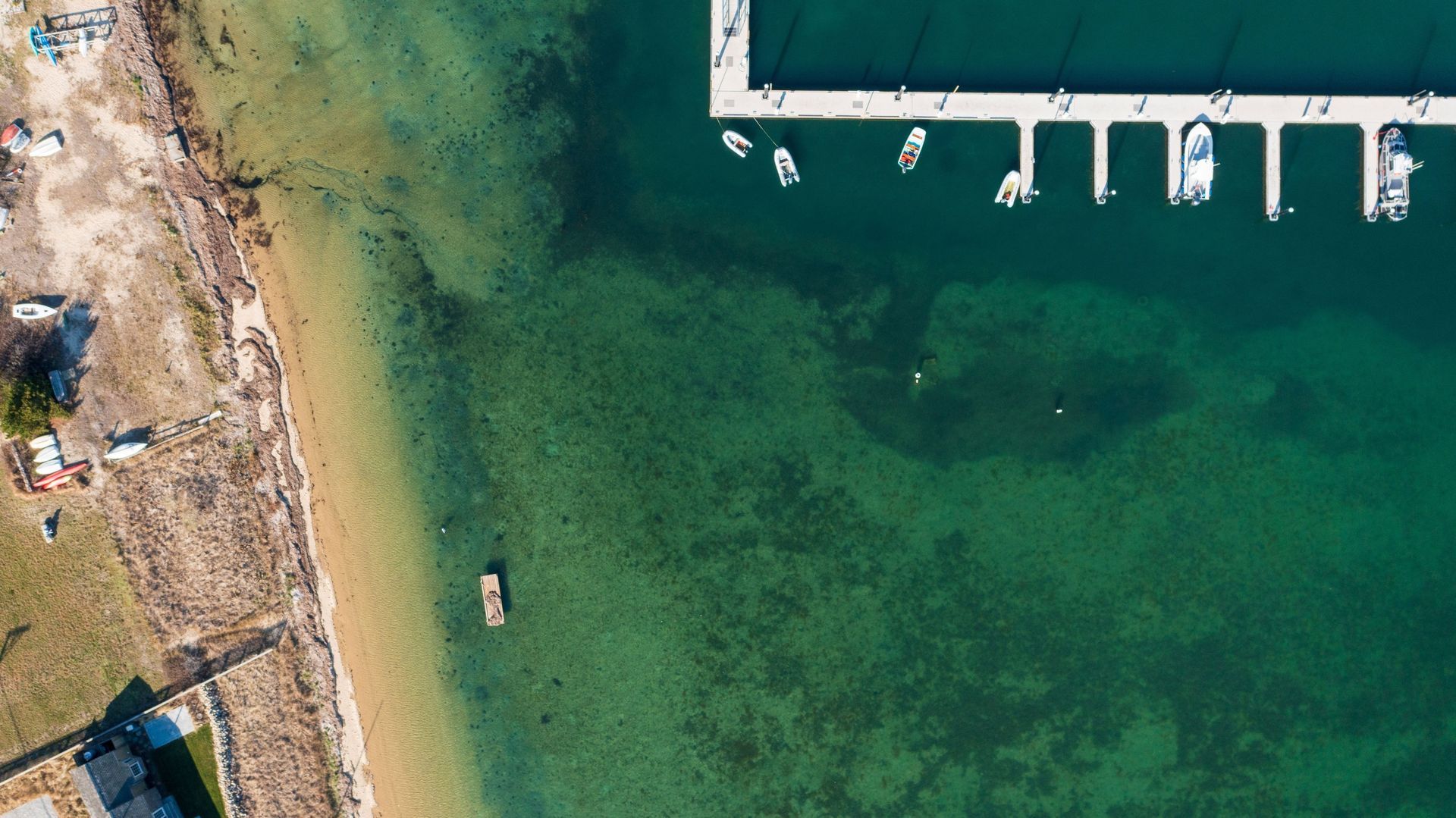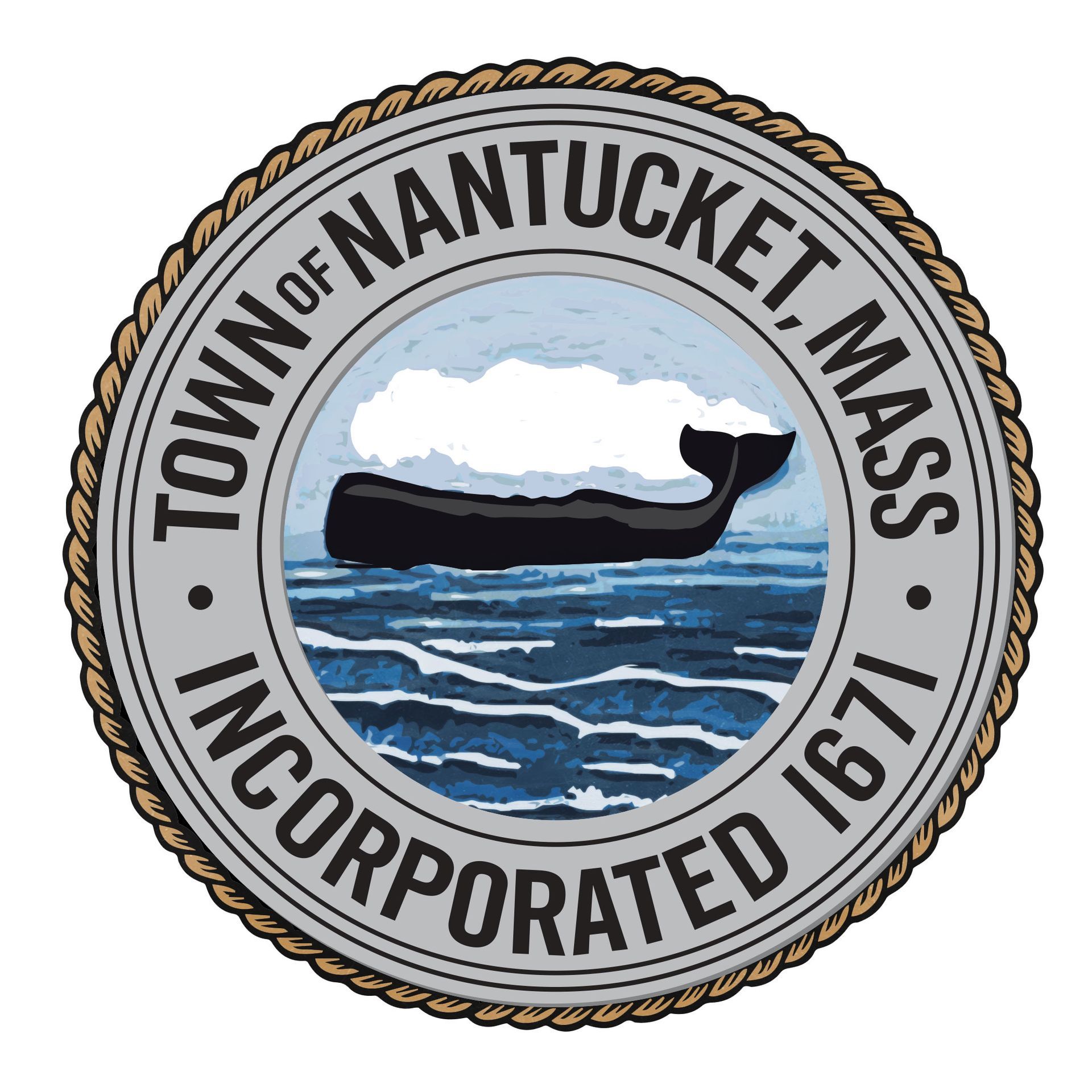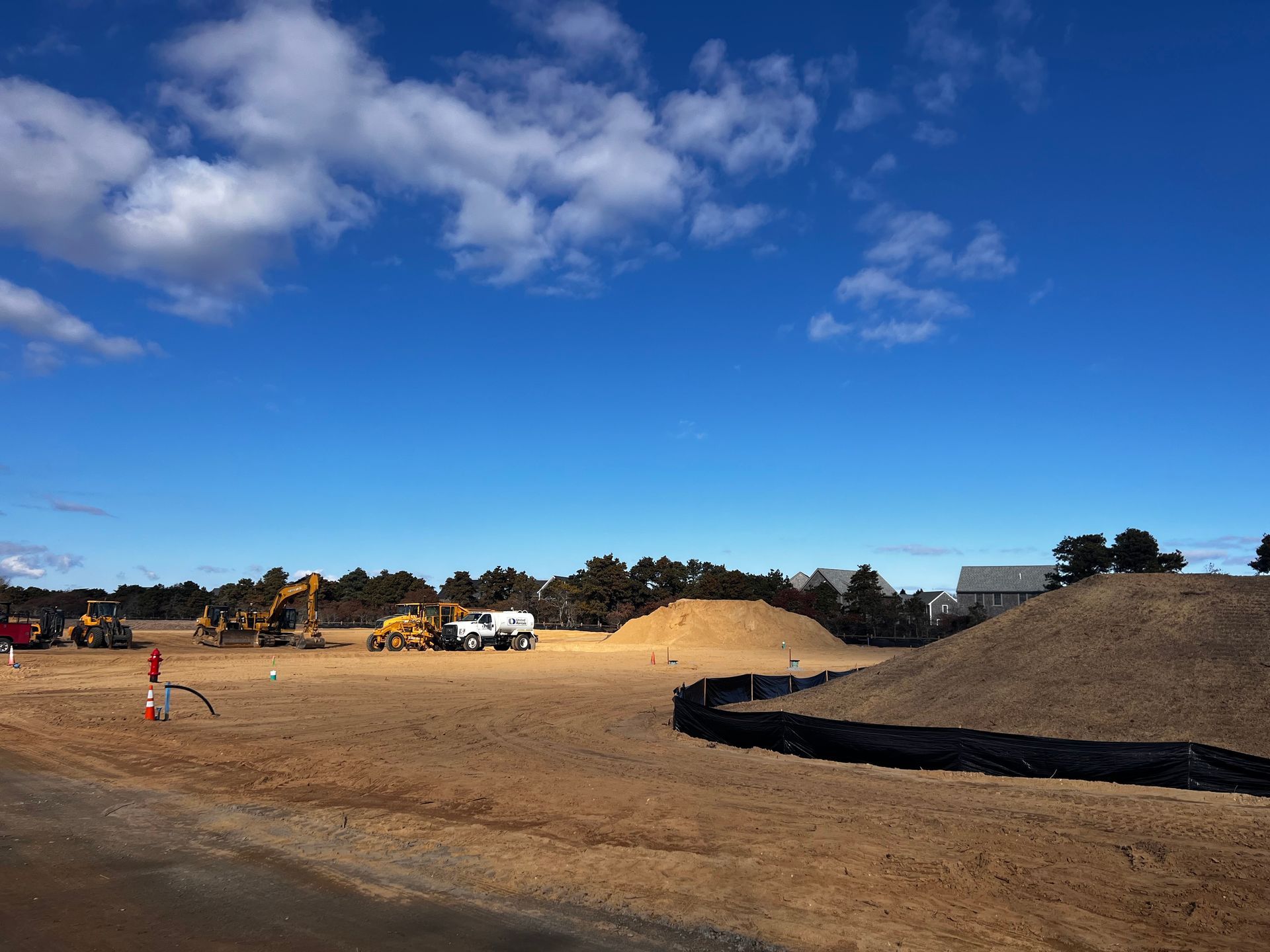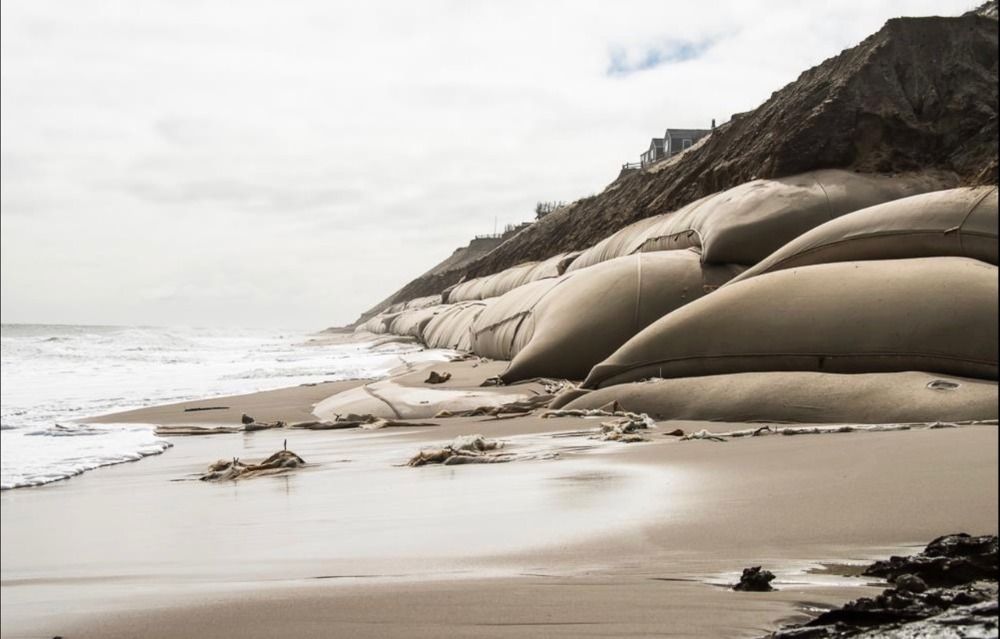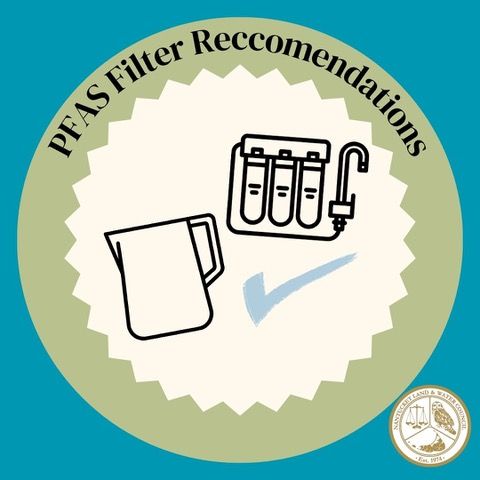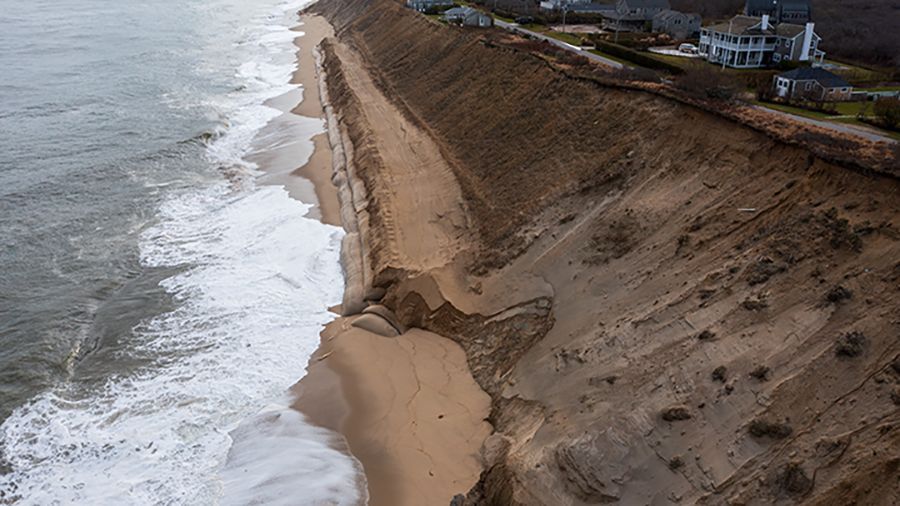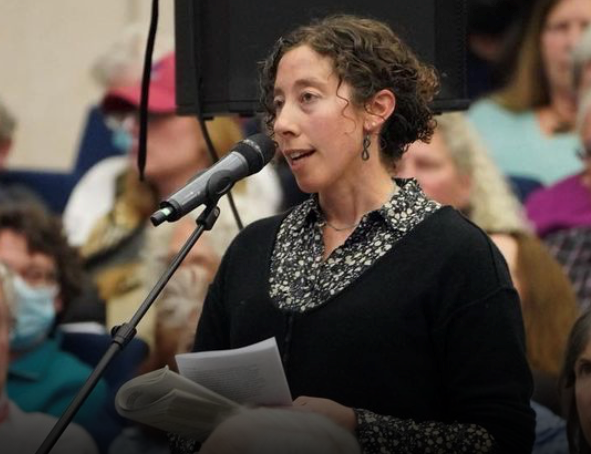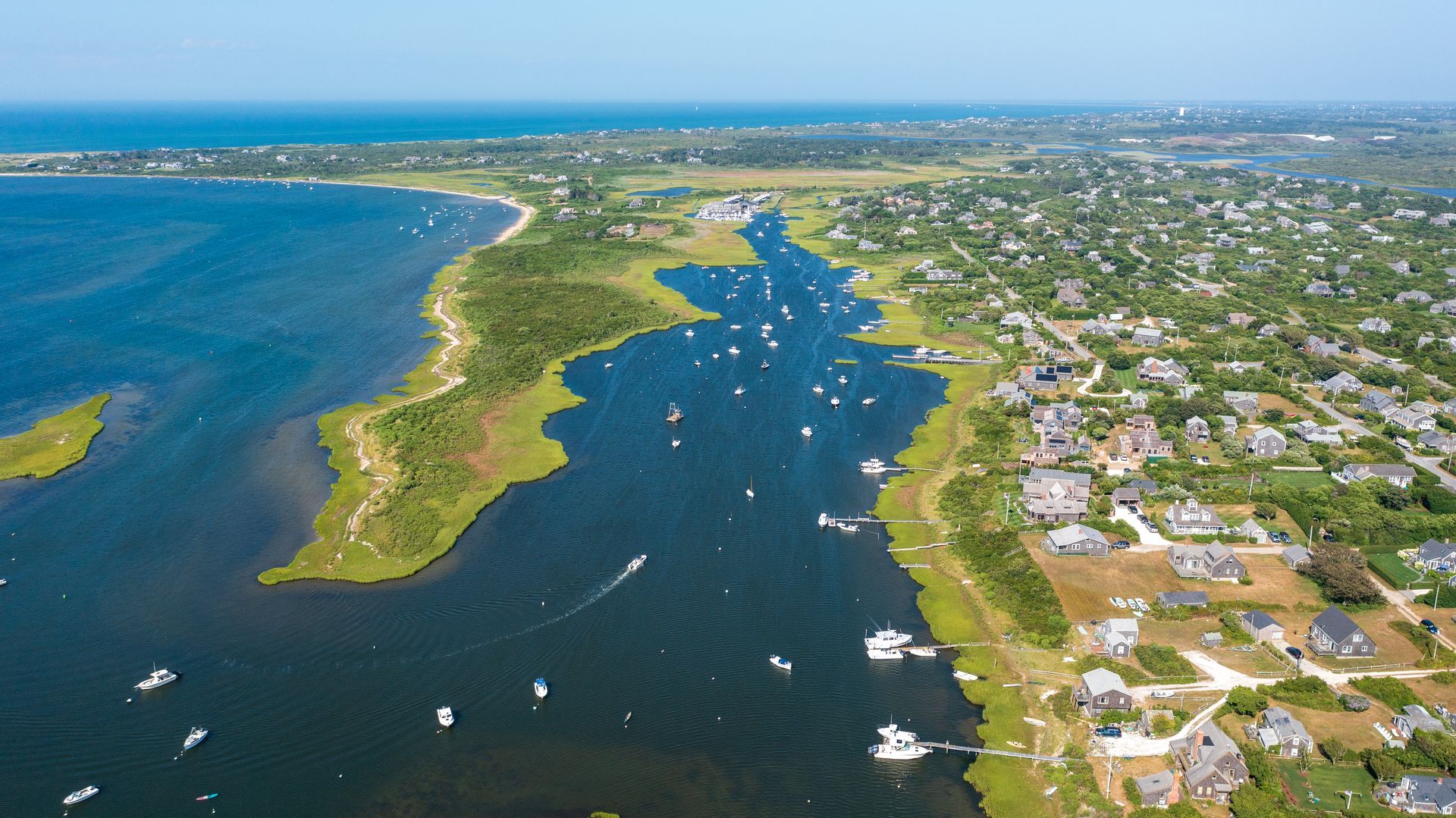By Anna Day
•
April 20, 2025
The Nantucket Land & Water Council (NLWC) has joined over a dozen Nantucket residents including members of the Nantucket Coastal Conservancy, property owners in Quidnet, and the Greenhill Family, in filing a Request for a Superseding Order of Conditions (SOC) with the Massachusetts Department of Environmental Protection. The Nantucket Conservation Commission voted on March 20, 2025 to issue a positive Order of Conditions (OOC) for the geotube expansion project as jointly proposed by SBPF and the Town of Nantucket (TON). As is the case with all wetland permits, this equates to the issuance of two independent OOCs, one under the MA Wetlands Protection Act, and one under the Nantucket Wetlands Bylaw. The Request by the NLWC and the Resident’s Group for an SOC is a formal process seeking the Department of Environmental Protection to issue an SOC denying or curtailing the proposed projec t in order to defend those coastal wetland resources that are protected under the MA Wetlands Protection Act. The NLWC’s opposition to the geotube expansion project is based on a number of factors. F irst and foremost, the NLWC does not believe the project as conditioned satisfies the performance standards in the MA Wetland regulations. NLWC’s consultant along with the Greenhill family’s coastal engineering consultant, utilized SBPF’s own monitoring data to demonstrate that the existing geotubes have clearly damaged the surrounding public beaches (at times eliminating a walkable beach in front of the structure) and accelerated erosion of the coastal banks to the North. The existing stretch of geotubes remain out of compliance with their prior permit as issued by the Conservation Commission due to SBPF’s failure to provide the required mitigation sand since 2016. This violation of SBPF’s permit resulted in a removal order which was upheld by Superior Court and is still outstanding. “We are honored to join with our partners, the NLWC, to take action to protect and preserve Nantucket’s beaches, especially our public ones,” said Burton Spruce Balkind, President of the Nantucket Coastal Conservancy. “The evidence submitted to the Conservation Commission during the public hearing was undeniable: the existing geotubes are degrading, and will eventually destroy the fronting beach. The same will happen with the expanded geotubes.” Over the course of the 15-month public hearing process, the NLWC submitted 7 written comment letters in conjunction with their coastal engineering consultant, Trey Ruthven of Sustainable Coastal Solutions, and collectively made many public comments in opposition to this project. While the NLWC recognizes and appreciates the permit condition requiring SBPF to contribute 105,465 cubic yards of sand to make up for the existing deficit, they have been given up to ten years in which to do so, while the permit itself will be valid for just five years. The NLWC also attests that the mitigation requirements conditioned in this permit for the new geotubes will not be adequate to mitigate the project's long-term impacts. “Respectfully, the Town’s partner, SBPF, who will be responsible for this massive volume of mitigation has a very poor track record of providing it, and as the record shows, once these geotubes are installed, they are very difficult to remove despite conditions in permits, escrow accounts, court orders, and agreements with the Town. We have been here before,” said Emily Molden, Executive Director of the Nantucket Land & Water Council. Additionally, there is a logical alternative for the Town to address its liability and protect the public’s interest along Baxter Road that the NLWC supports. The NLWC advocates that the Town should proceed with the Baxter Road Alternative Access Plan (which has been completed and can be constructed within 3 years), and in the meantime, temporarily maintain and mitigate the existing geotubes with the addition of softer coir installations in adjacent areas as needed. This plan will allow for the ongoing protection of residents' access and utilities, as well as access to, and parking for the Lighthouse. “It does not make sense to simultaneously retreat, through construction of the Alternative Access Plan, and armor the bank, through expansion of the geotubes,” said Molden. NLWC’s Board Chair Lucy Leske added, "As Nantucket's environmental protection and advocacy organization, NLWC believes that this project is allowing selective private interests to supercede the best interest of all Nantucket citizens and our environmental resources, while at the same time turning nearly a mile of beach into a giant construction project for the next decade, distracting us from the true need to move the road." The NLWC and co-appellants in the Resident’s Group also raise a number of critical procedural issues with the issuance of the OOC including the lack of sufficient site plans. The Conservation Commission accepted the submission of plans dated October 26, 2022 which do not accurately reflect existing conditions in such a dynamic area. These plans also lack the stamp of a Professional Engineer registered to conduct business in the Commonwealth. They also contend that s everal additional state permits were required before an OOC should have been issued, i ncluding a Notice of Project Change with Massachusetts Environmental Policy Act (MEPA) and a Chapter 91 License, which is required because the NOI plans show work that would have to occur below the Mean High Water (MHW) mark. The community will have its own opportunity to weigh in on the Town’s commitment to this project at Annual Town Meeting (ATM) in May. Town Meeting’s vote will be necessary to allow the issuance of a license to SBPF to construct this project on the Town-owned beach below the bluff because of a citizen’s article originally submitted by Catherine Flanagan Stover at ATM in 2012. The project cannot proceed without a positive vote (permission) from Town Meeting. The Select Board is seeking that permission through the adoption of Article #81 at ATM on Saturday, May 3. The NLWC and NCC are urging citizens to vote NO on this article. Resources: Throughout the public hearing process the Conservation Commission was provided with a multitude of submissions from the NLWC's Coastal Engineer Trey Ruthven of Sustainable Coastal Solutions, and the Greenhill's Coastal Engineer Dr. David Kriebel as well as members of the public. All of the submissions from the hearing can be found through the Town's website. We would like to highlight several submissions clearly demonstrating the negative impacts that geotubes have had on the adjacent beach as well as the downdrift coastal bank. 1. Slideshow: Impact of the Geotube on the Beaches of Nantucket's Eastern Shore, submitted by Dr. David Kriebel on August 2, 2024 2. Report: Impact of the Geotubes on the Beaches of Nantucket's Eastern Shore, submitted by Dr. David Kriebel on August 2, 2024 3. Visualization: Quantifying the Sand Deficit & Mitigating Sand vs Downdrift Loss, submitted by Nantucket resident Doug Rose on September 19, 2024 4. Visualization: Sconset Beach after a Decade of Geotubes, submitted by Nantucket resident Doug Rose on January 10, 2025


